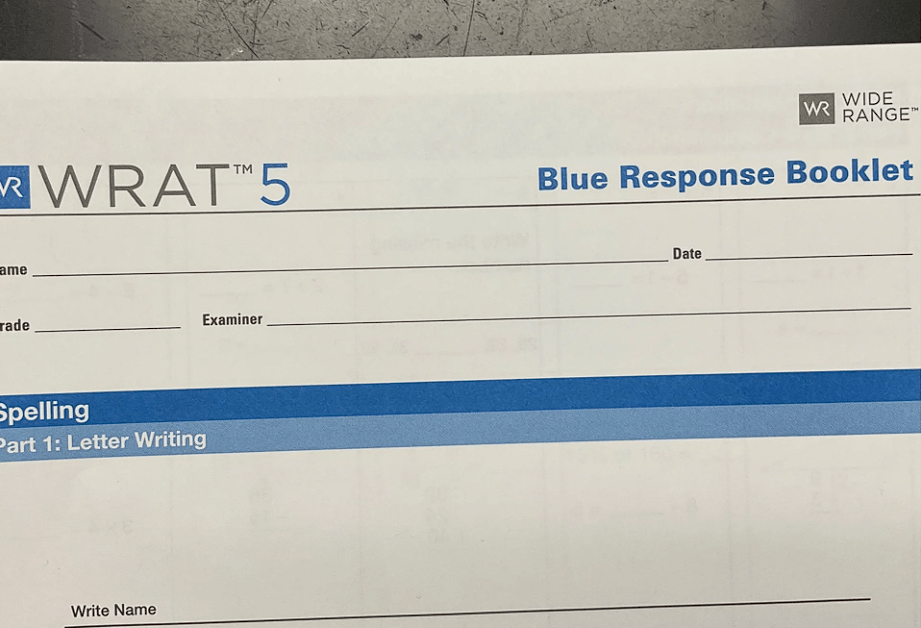Academic assessment is the process of gathering and interpreting information about a student’s academic performance. It can be used to identify students who need additional support, to track progress over time, and to make decisions about placement and programming.
Academic assessment is particularly important for autistic students, who may have unique strengths and weaknesses in different areas. For example, some autistic students may excel in math and science, while others may struggle with reading and writing. It is important to have a comprehensive understanding of each student’s academic abilities so that they can receive the support they need to succeed.
There are a variety of different academic assessments that can be used for autistic students. Some common assessments include:
- Intelligence tests: Intelligence tests measure a student’s overall cognitive ability. They can be used to identify students who may need additional support in the classroom.
- Achievement tests: Achievement tests measure a student’s knowledge and skills in specific academic areas, such as reading, writing, and math. They can be used to track progress over time and to make decisions about placement and programming.
- Adaptive tests: Adaptive tests are computer-based tests that adjust the difficulty of the questions based on the student’s performance. This can help to ensure that the test is not too difficult or too easy for the student.
- Portfolio assessments: Portfolio assessments involve the collection of student work over time. They can be used to assess a student’s progress in a particular area, such as writing or art.
When selecting an academic assessment for an autistic student, it is important to consider the student’s individual needs. Some factors to consider include:
- The student’s age and developmental level: It is important to select an assessment that is appropriate for the student’s age and developmental level.
- The student’s strengths and weaknesses: It is also important to select an assessment that will measure the student’s strengths and weaknesses accurately.
- The purpose of the assessment: It is important to consider the purpose of the assessment when selecting the right one. For example, if the assessment is being used to identify students who need additional support, then you will want to select an assessment that is designed to measure academic skills.
Once an assessment has been selected, it is important to administer it in a way that is fair and accurate. This means providing the student with the necessary accommodations and support. For example, if the student has difficulty with reading, then you may want to allow them to listen to the test questions instead of reading them.
Once the assessment has been administered, it is important to interpret the results carefully. It is important to consider the student’s individual needs and circumstances when interpreting the results. For example, if the student has a learning disability, then you may want to consider this when interpreting their performance on a standardized test.
Academic assessment can be a valuable tool for supporting the academic success of autistic students. By carefully selecting and administering assessments, and interpreting the results carefully, educators can gain a better understanding of each student’s academic abilities and needs. This information can then be used to develop individualized education programs (IEPs) and other interventions that will help each student succeed.
Here are some additional tips for supporting the academic success of autistic students:
- Create a supportive and inclusive learning environment: Autistic students thrive in learning environments that are supportive and inclusive. This means creating an environment where all students feel safe and respected.
- Provide individualized instruction: Autistic students learn best when they are given individualized instruction. This means tailoring the instruction to the student’s individual needs and learning style.
- Use evidence-based practices: There are a variety of evidence-based practices that can be used to support the academic success of autistic students. These practices include applied behavior analysis (ABA), picture exchange communication (PEC), and social skills training.
- Collaborate with parents and other professionals: It is important to collaborate with parents and other professionals when supporting the academic success of autistic students. This means working together to develop and implement effective IEPs and other interventions.
If you are serious about learning, then one-on-one classes at OrbRom Center are the best way to go. Our experienced teachers will help you achieve your academic goals. Contact us TODAY.
Welcome to OrbRom Centre
Choosing learning support for your child is one of the most important decisions you will make, and I welcome you to discover more about why OrbRom is the best option in Phnom Penh.

H. Sophaneth B.Ed, M.Ed





Leave A Comment